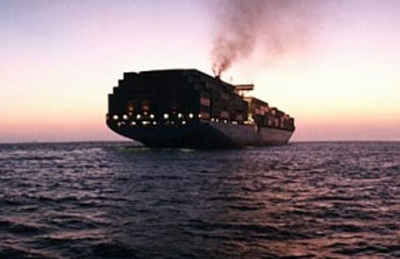Shipping must cut CO2 emissions further, say environmental bodies

Pressure is building to impose outside limits on shipping’s CO2 emissions ahead the COP21 Climate Change Conference taking place in Paris next month.
Lobby group the Sustainable Shipping Initiative (SSI) argues that the current IMO regulatory framework to manage CO2 emissions, whilst “welcomed', is “insufficient" to meet the target set by the UNFCCC (The United Nations Framework Convention on Climate Change) of no more than a 2°C rise in global temperatures above pre-industrial levels.
“It is not commercially, environmentally or socially sustainable for the shipping industry to continue on a Business As Usual carbon emissions pathway,” SSI said in a statement, citing research it had commissioned from University College London.
Alastair Fischbacher, SSI ceo, added: “The challenge faced by the industry on CO2 is clear. It would be unacceptable for shipping to increase its share of global emissions and not play its part in the global reduction. Importantly, the longer the delay in implementing reductions, the further behind we fall and the harder it will become. It is crucial that there are progressive targets and timeframes set now for the industry to work towards, where it contributes fully to reducing global CO2 emissions”.
Two other lobby groups, Seas At Risk and Transport & Environment (T&E), have also released a joint statement on what they call the “Elephant in the climate negotiations room".
“Paris should be the moment when the world sets itself on a course that avoids dangerous climate change,” said Seas At Risk policy advisor and president of the Clean Shipping Coalition, John Maggs. “To achieve this all will have to play their part; there is no room for shirking responsibility or special pleading, least of all from an industry like shipping that has so much untapped potential to reduce emissions and move to a low carbon business model.”
Sotiris Raptis, shipping policy officer at T&E, added: “Left unregulated, ships and aeroplanes could be responsible for almost 40% of global emissions in 2050 if other sectors decarbonise. Any deal in Paris must lead to an emissions reduction target and measures for shipping and aviation, otherwise the efforts of all other sectors of the global economy to meet the 2°C target could be derailed.”
HEADLINES
- Do shipping markets want Biden or Trump for the win?
- All 18 crew safe after fire on Japanese-owned tanker off Singapore
- Singapore launching $44m co-investment initiative for maritime tech start-ups
- Cosco debuts Global Shipping Industry Chain Cooperation Initiative
- US warns of more shipping sanctions
- China continues seaport consolidation as Dalian offer goes unconditional